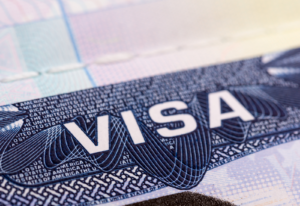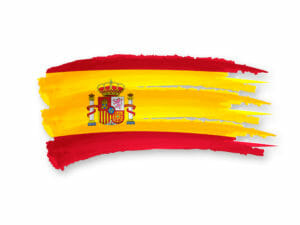If you consider putting down roots in Spain, either by opening your own local business or entering into contracts for which you need a Spanish tax ID or bank account, you will also need to deal with extremely strict anti-money laundering rules. Most of our foreign clients are not aware of the transparency that is required of business owners in Spain.
The reality is that, nowadays, any transaction to be completed in Spain requires almost the same amount of time and effort to notify and provide evidence of the true owner behind the transaction and the origin of funds as it takes to prepare and close the transaction itself.
The Rules Until Now: Anonymity in Spanish Company Ownership
One of the essential historical principles of Spanish corporate law is the concept of anonymity (hence the name “Sociedad Anónima”). Generally, the identity of the owners behind a Spanish stock corporation or capital company need not be revealed to the public. The exception to this is the company owned by a single owner, which must reveal the identity of that owner to alert potential business partners. In that case, the identity of the entity or person must be registered at the Commercial Registry; it thus becomes information accessible to the public. All other owners of Spanish companies can easily hide their identity from the public.
However, in the course of combating money laundering, Spanish legislators and bureaucrats are increasingly undermining this principle.
Spain’s Anti-Money Laundering Law Erodes Anonymity and Burdens Lawyers
In the wake of the introduction of the U.S. House Bill entitled the “Corporate Transparency Act of 2019,” practitioners in Spain commented that this has been a legal requirement for quite some time in Spain. The prevention of money laundering has become a central element of business and economic relations in Spain, an indispensable element in preventing the use of complex corporate structures to commit crimes.
For example, a 2010 law entitled Law 10/2010 prohibits lawyers from providing legal advice to corporate clients that have not disclosed their true ownership identity. Moreover, lawyers must affirmatively report to the authorities a client that does not wish to disclose certain information. The real owner, also known as the “ultimate beneficial owner,” is defined as the individual person who directly or indirectly controls more than 25% of the capital or voting rights of a company.
Similar to the U.S., the main purpose is the prevention of money laundering and the financing of terrorism. The Spanish legislation is the result of the requirements imposed by EU Directive 2005/60/EC of the European Parliament and of the Council, of October 26, 2005, and Commission Directive 2006/70/EC of August 1, 2006. Current Spanish legislation in that area also refers to the recommendations issued by the Financial Action Task Force (“FATF”).
But Not Only Lawyers are Burdened
Not only lawyers, however, are obliged to apply the new regulations. The Spanish legislation applies to all relevant parties in the transaction. These relevant parties include financial institutions, notaries public, financial consultants, business consultants, real estate agencies, and real estate developers. All of these parties must apply strict standards of control to their customers and potential customers, whether said customers are residents or non-residents in Spain.
Hence, if you are carrying out a transaction in Spain involving funding or flows of funds, then you must provide specific documents and information relating to you or your company owners’ identities and their business or professional activities to all advisors and professionals involved. This disclosure is not only necessary for the transaction itself but all procedures related to that transaction, such as opening a bank account, executing a public deed, acquiring real estate, providing consulting services, or paying your consultants and advisers. The relevant persons must perform certain formalities to identify you as their customers and identify the origin of your funds.
You must be prepared for full disclosure to an extent with which you will most likely not be comfortable. Most importantly, you must prepare your investors for that disclosure with which they will not feel comfortable.
Documents Required to Identify Beneficial Owners in a Transaction
All of the persons required by statute to apply this “know your customer” screening must have procedures in place for identifying and accepting you as their customer and classifying each customer according to risk. This means you may be flagged as high risk, depending on your activity (illegal or illicit) or the origin of your funds (i.e. tax havens).
Below is a list of documentation you will need to provide to demonstrate the identity of the beneficial owners of the transaction:
- Admissible identifying documents
For individuals, you need ID cards and/or residence permits, a foreign card, passport, or, in the case of citizens from the European Union or the European Economic Area, an official letter or personal identity card issued by the authorities of origin. The original document needs to be shown and a copy kept on file.
For legal entities, you will need to show public documents proving their existence and containing their corporate name, legal form, address, the identity of their directors, their bylaws and tax identification number.
For all authorized representatives, a copy of the legally valid document relating to the representative and to the represented person or entity, and the public document evidencing the powers conferred must be shown and a copy kept on file.
The identification documents must be in force when business relationships are established and when the transactions are executed.
- Identifying the ultimate beneficial owner
The identification and verification of the identity of the beneficial owner may generally be made in a solemn declaration by you as the customer or the authorized representative of the legal entity.
- Purpose and nature of the business relationship
You will need to provide information about the nature of your business activity. You can do so by presenting pay stubs, a labor history, or employment contracts if you are an employee; proof of payment of social security or other membership cards if you are a freelancer; or your last corporate income tax return, financial statements, annual business reports or external audits if you run a company funding a transaction in Spain.
- Evidence of the origin of funds
This is a key point: your Spanish advisors will need to be especially strict in reviewing the origin of funds in those situations in which, given the nature and characteristics of the transaction and in view of the criteria established in legislation, they consider that there is a higher risk of money laundering or terrorist financing.
Basic Spanish Corporate Principles at Risk
Since the law’s passage in 2010, no one has objected to the principles of preventing money laundering and terrorism. But a problem has arisen as the application of the rules that has distorted their original purpose. Starting in 2010, Spanish notaries were initially obliged to keep (in a private document) the declaration of real ownership signed by the individual who was the ultimate beneficial owner. Soon after, the execution of that declaration in the form of a public deed became obligatory.
Probably few were aware that the notary’s office feeds this information disclosing the individual behind a company into a centralized database that currently contains the data of more than 2.3 million companies. Access to this data is generally only permitted if there is a suspicion of money laundering. In practice, however, the Spanish tax authorities already do have access to all of this data if they simply state that they have suspicions of money laundering. This declaration opens all doors for the Spanish tax administration to identify the individual owners behind a company.
The publication of a ministerial decree in 2018 was more disturbing because it unexpectedly included a form that required companies to declare their beneficial owners. If companies do not comply, their annual report of accounts cannot be filed. In principle, these company declarations of beneficial ownership are not publicly available, unlike the annual financial statements. However, this process enhances the risk of unauthorized or unnecessary applications to access such restricted information. The Spanish press reported a similar incident earlier this year. Due to an agreement between the registries and the courts, the latter could also access this confidential information.
This 2018 ministerial decree is most disturbing because it paves the way for courts to have access to this data for reasons that have nothing to do with money laundering or financing terrorism. This means that that the concept of anonymity (“Sociedad Anónima”), which is one of the essential principles of Spanish corporate law, is destroyed at the stroke of a bureaucratic pen.
We have yet to see how the courts will apply this access to the Registry, but for now we are under the impression that “the fox is guarding the henhouse.”





















